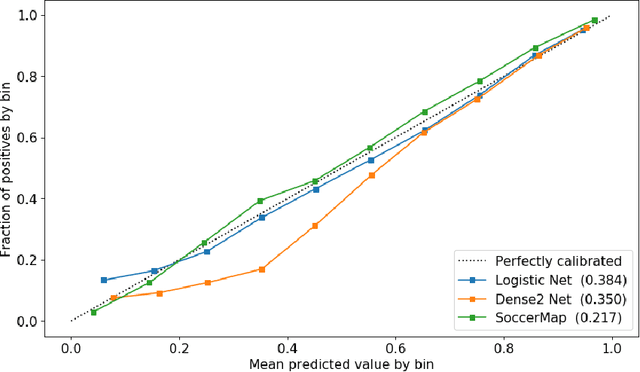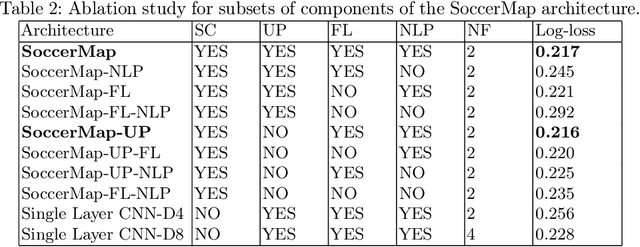SoccerMap: A Deep Learning Architecture for Visually-Interpretable Analysis in Soccer
Paper and Code
Oct 20, 2020



We present a fully convolutional neural network architecture that is capable of estimating full probability surfaces of potential passes in soccer, derived from high-frequency spatiotemporal data. The network receives layers of low-level inputs and learns a feature hierarchy that produces predictions at different sampling levels, capturing both coarse and fine spatial details. By merging these predictions, we can produce visually-rich probability surfaces for any game situation that allows coaches to develop a fine-grained analysis of players' positioning and decision-making, an as-yet little-explored area in sports. We show the network can perform remarkably well in the estimation of pass success probability, and present how it can be adapted easily to approach two other challenging problems: the estimation of pass-selection likelihood and the prediction of the expected value of a pass. Our approach provides a novel solution for learning a full prediction surface when there is only a single-pixel correspondence between ground-truth outcomes and the predicted probability map. The flexibility of this architecture allows its adaptation to a great variety of practical problems in soccer. We also present a set of practical applications, including the evaluation of passing risk at a player level, the identification of the best potential passing options, and the differentiation of passing tendencies between teams.
 Add to Chrome
Add to Chrome Add to Firefox
Add to Firefox Add to Edge
Add to Edge